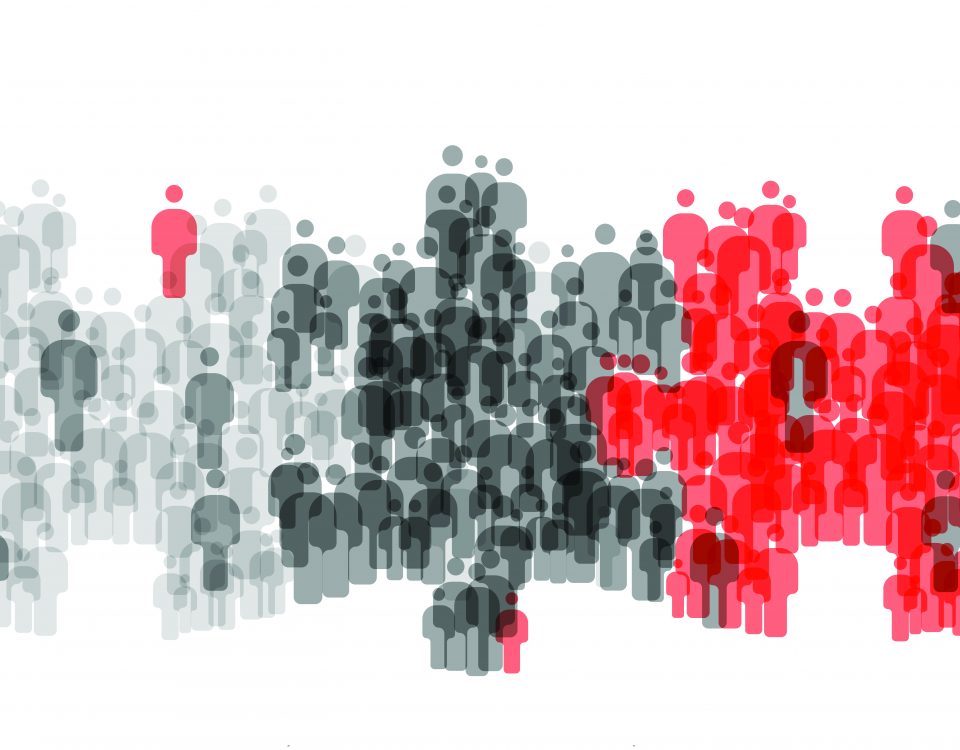


Are Communicable Diseases Only Communicable?
12 December 2021
Human and Social Sciences at the Bedside of Health?
12 December 2021By Patrick Castel, Centre for the Sociology of Organisations
The humanities and social sciences have long highlighted a key truth: health cannot be reduced to issues falling within the remit of biological knowledge and discovery of medical treatments. The Covid-19 pandemic reminded us of the eminently political nature of health issues. This dimension is primarily apparent in debates and struggles to define the legitimate scope and tools of intervention in this field by public authorities – primarily the State, but also professional groups.

Olivier Véran et Jean Castex, Ségur de la santé, juillet 2020
Choices relating to the (re) distribution of collective resources, organisation of health systems, and criteria to evaluate their performance are subject to ongoing negotiation. The term politics also pertains to the idea that the links between science and public action, and between expertise and political decision, are neither automatic – ‘just follow the science’ does not suffice – nor univocal. Rather, they vary by institutional context and over time. Moreover, many academic works argue that the judgments of health professionals are steeped in moral considerations and cannot be reduced to the strict and objective application of scientific knowledge(1)Freidson Eliot, 1984, La profession médicale, Payot ; Dodier Nicolas, 1993, L’expertise médicale. Essai sur l’exercice du jugement médical, Métailié ; Saguy Abigail, 2013, What’s Wrong with Fat?, Oxford University Press. Finally, many balances between the individual and the collective(s), between freedoms and constraints, and between rights and duties, are arbitrated and redefined around health issues.
Thus, the health policy landscape is vast and its boundaries are constantly shifting. Here again, the pandemic illustrates the phenomenon: the government’s focus on controlling the spread of the coronavirus from spring 2020 onwards was challenged on the grounds that the focus on fighting the virus would impact other health issues and diseases. Also raised was the fact that the pandemic and the tools deployed to contain significantly impacted many other public policy areas: education, the economy, poverty reduction… More generally, in order to understand the agenda-setting processes for health issues (or why some of them fall short of becoming ‘public problems’) and the preferred tools to address them, it is important to study how health issues are linked to security, economic, social, environmental, and other problems.
This issue provides a glimpse of the range of health issues and the complexity of the processes seeking to address them. Although health professionals – primarily physicians – continue to play a central role, they are far from being the only ones. We will notably see in the various contributions that the economic players and populations affected by the interventions are key to understanding health policies, and therefore to improving policy outcomes.
Diseases and Health Professionals
The most visible aspect of health policies is fighting disease, and it commands the largest share of health systems’ budgets (care services, medicine reimbursement, etc.). Three articles cover this aspect.
In France, private practices are the primary care providers. Many reforms have been launched over the past decades to structure this sector. In her article City medicine: increasingly limited independence?, Anne Moyal studies the genesis and implementation of an emblematic one of them: the creation of multi-professional health centres. She probes the role that doctors play in these structures and their ability to maintain their professional independence.
Measuring the quality of care in order to improve it is an objective that many countries and international institutions share. From a European comparative perspective, and considering hospitals as a case study, Anne-Laure Beaussier shows in her article that behind the shared imperative of quality lies a great variety of ways to conceive and measure it across countries.
Meanwhile, Catherine Cavalin and Paul-André Rosental question the relevance of the ‘boundary’ established between chronic and infectious diseases, which significantly shapes how health policies are designed and funded. However, starting from the observation that the reconstitution of life trajectories is a determining factor in pathological dynamics, including communicable diseases, the two authors argue that the humanities and social sciences can play an essential role in research alongside physicians and epidemiologists.
Better Understanding Health Policy Targets
Three other articles study the audiences or targets of public health policies in various areas. All three warn against cursory analyses suggesting these might consist of passive and/or irrational individuals. In their contribution, Agnès van Zanten and her colleagues present the initial findings of research on students’ ‘perspective’ on the medical education reform implemented in 2019. Among their findings, they underscore the importance to students of the meritocratic compact.

© Shutterstock
Although widespread, doping in the workplace is taboo. By observing psychoactive substance use in the workplace, Renaud Crespin identifies various roles that the use of these substances play. In his article, he demonstrates that precise studies enable envisaging preventive policies on this delicate subject.
Fighting epidemics is a historical component of public health policies. Jules Villa examines conspiracy theories related to epidemics. Using the tenth Ebola epidemic in the Democratic Republic of Congo as a case study, he suggests exploring what these theories can teach us about lived experience and power relations, rather than dismissing them out of hand.
Regulators and the Regulated
By studying the invention of microbiome medicine and the emergence of related health products, Étienne Nouguez shows in his article the extent to which the regulation of health innovations is essential. How to define them? Are they food? Are they drugs? He shows that the complex and conflicting processes underway to qualify and promote them reflect the interactions between scientists, regulatory agencies, and industry.
Meanwhile, Guillaume Levrier questions the governance of innovations linked to the human genome. Faced with the dizzying questions they raise about the definition of life, States and international institutions have shied away from establishing a precise legal framework, apparently giving up their (bio) power to ‘make live’. To the point that they have left it to individuals or groups (judges, scientists, industrialists) to set limits on experimentation.
Finally, Daniel Benamouzig and Joan Cortinas map the political activities of agribusiness. These activities, which they categorise as cognitive, relational, or symbolic, impact health policies related to nutrition and food to varying degrees. They raise complex regulatory issues requiring solutions that go beyond the management of individual conflicts of interest.
This issue of Cogito shows only a sliver of the many research projects conducted at Sciences Po on health issues across various disciplines in the humanities and social sciences. Given the immense challenges in the organisation and financing of health care, the prevention and reduction of health inequalities, relations between health and the environment, and citizens’ rights and democracy, which the pandemic and its management have strikingly illustrated, there is no doubt that research will continue to develop around this vast theme within our community.
See the directory of our researchers working on health
Patrick Castel is research director at the French National Foundation for Political Science at the Centre for the Sociology of Organisations. His work focuses on decision-making and cooperation mechanisms in organizations and in public action, using health as a privileged field of study (especially cancer and obesity). He is currently interested in the management of the Covid crisis on the one hand and prescription in nursing homes on the other hand.
Notes
| ↑1 | Freidson Eliot, 1984, La profession médicale, Payot ; Dodier Nicolas, 1993, L’expertise médicale. Essai sur l’exercice du jugement médical, Métailié ; Saguy Abigail, 2013, What’s Wrong with Fat?, Oxford University Press |
|---|




